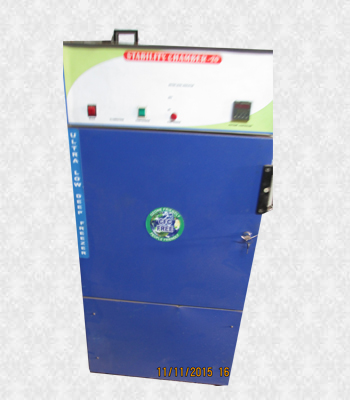- Call Us
+91 - 7972068414 / 9819877192
- Send Mail
response@shantaengineering.com
Deep Freezer
Deep Freezer

Welcome to Shanta Engineering: Your Premier Source for Deep Freezers
At Shanta Engineering, we understand the critical role that deep freezers play in preserving perishable items, maintaining product quality, and ensuring food safety. As a leading manufacturer and supplier of high-quality deep freezers, we take pride in offering innovative solutions that meet the diverse needs of our clients across various industries.
Manufacturer of Premium Quality Deep Freezers
Our commitment to excellence drives us to continuously innovate and refine our deep freezer designs. Utilizing state-of-the-art technology and premium quality materials, we manufacture deep freezers that deliver exceptional performance, reliability, and durability.
- ❖ Advanced Cooling Technology: Our deep freezers are equipped with advanced cooling technology to ensure rapid and uniform cooling, preserving the freshness and quality of your products.
- ❖ Energy Efficiency: We prioritize energy efficiency in our designs to help our clients minimize operating costs and reduce their environmental footprint.
- ❖ Robust Construction: Built to withstand the rigors of commercial and industrial environments, our deep freezers feature robust construction for long-lasting durability and reliable performance.
- ❖ Customization Options: We understand that every business has unique requirements. That's why we offer customization options to tailor our deep freezers to suit your specific needs, whether you require special sizing, additional features, or branding options.
Trusted Supplier of Deep Freezers
In addition to manufacturing premium quality deep freezers, we also serve as a trusted supplier, providing our clients with comprehensive solutions to meet their refrigeration needs.
- ❖ Wide Range of Products: From upright deep freezers to chest freezers, we offer a wide range of products to accommodate various storage requirements and space constraints.
- ❖ Reliable Distribution Network: With a reliable distribution network, we ensure timely delivery of our products to clients across different regions, ensuring minimal downtime and maximum efficiency.
- ❖ Exceptional Customer Service: Our dedicated team of professionals is committed to providing exceptional customer service, from assisting you in selecting the right deep freezer for your needs to offering technical support and after-sales service.
Experience the Shanta Engineering Difference
Whether you're in need of a reliable deep freezer for your laboratory, restaurant, supermarket, or medical facility, you can count on Shanta Engineering to deliver premium quality products and exceptional service. Contact us today to learn more about our deep freezer solutions and how we can help meet your refrigeration needs.
DEEP FREEZER UPTO ( -20˚C)
Size 50 x 50 x 50 cm
UPTO ( -40˚C)
Size 50 x 50 x 50 cm
UPTO ( -50˚C)
Size 50 x 50 x 50 cm
Shanta Engineering is one of the manufacturers of Material Testing Equipment, Hot Air Oven, Hardness Tester, Laboratory Hot Plates, Tensile Testing Machine, Laboratory Apparatus, Laboratory Equipments, Plastic Testing Equipments, Rubber Testing Equipments, Cable Testing Equipments, Metal Testing Equipments, Inhouse Developed Machines, Cold Chamber, Halogen Gas Evolution, Limiting Oxygen Index Apparatus, Constant Temperature Oil Bath, Melting Point Apparatus For Plastic, Flammability Test as per IS - 10810, Creep Tester, Shore Hardness Tester (Durometer).
Deep Freezer for Laboratory
A Deep Freezer for Laboratory Equipment is a specialized appliance used for storing sensitive biological, chemical, or pharmaceutical materials at extremely low temperatures. These freezers are commonly found in research labs, hospitals, and industrial settings where precise temperature control is critical for preserving samples or reagents.
Use of Deep Freezer for Laboratory
A Deep Freezer is a critical piece of equipment in many laboratories, especially those involved in biological, medical, pharmaceutical, and chemical research.
- ❖ Long-Term Sample Storage: Preserves biological samples (e.g., blood, plasma, serum, tissue, DNA, RNA, enzymes). Maintains sample integrity over months or years at temperatures typically between -20°C to -86°C.
- ❖ Microorganism Preservation: Used to store bacteria, viruses, and cell cultures without degrading their viability and often combined with cryoprotectants (e.g., glycerol) for enhanced preservation.
- ❖ Chemical and Reagent Storage: Protects sensitive chemicals, enzymes, and reagents from degradation due to temperature fluctuations and is essential for enzymes and PCR reagents in molecular biology.
- ❖ Vaccine and Drug Storage: Ensures the potency and safety of vaccines, biologics, and experimental drugs especially critical for RNA-based vaccines, which may require ultra-low temperatures.
- ❖ Forensic and Clinical Sample Preservation: Used to store forensic evidence (e.g., tissue, blood) for criminal investigations in clinical labs, preserves patient samples for future diagnostic analysis.
- ❖ Cryopreservation: Supports cryogenic storage of samples that must remain viable at ultra-low temperatures, including stem cells and reproductive cells (sperm/ova).
Key Features of Deep Freezer For Laboratory
Laboratory deep freezers are specialized refrigeration units designed to store biological samples, chemicals, and other materials that require precise and consistent low-temperature conditions. These freezers are commonly used in research facilities, clinical labs, universities, and pharmaceutical industries.
- ❖ Temperature Control: Digital temperature control for precision. Alarms for temperature deviations.
- ❖ Storage Capacity: Varying sizes and capacities, from compact benchtop units to large upright or chest freezers.
- ❖ Energy Efficiency: Advanced models offer eco-friendly refrigerants and energy-saving mechanisms.
- ❖ Security Features: Lockable doors, access codes, and alarm systems to prevent unauthorized access.
- ❖ Sample Organization: Internal racks, shelves, and boxes for easy sample management.
- ❖ Backup Systems: Battery backups and CO₂ or liquid nitrogen injection systems to maintain temperatures during power outages.
Types of Laboratory Deep Freezers
- ❖ Low-Temperature Freezers (-20°C to -40°C): Suitable for general laboratory storage of enzymes, media, and biological samples. Ideal for daily use and short- to medium-term storage.
- ❖ Ultra-Low-Temperature (ULT) Freezers (-50°C to -86°C): Designed for long-term storage of sensitive biological samples such as RNA, DNA, proteins, and cell cultures. Often used in biobanks and research labs. Energy-efficient models often include advanced insulation and temperature monitoring.
- ❖ Cryogenic Freezers (-150°C to -190°C): Utilized for storing materials that require extremely low temperatures, such as liquid nitrogen storage systems. Commonly used for preserving stem cells, embryos, and other delicate biological materials.
- ❖ Chest Freezers: Horizontal design for larger volume storage, energy efficient, but less convenient for frequent access.
- ❖ Upright Freezers: Vertical design with shelves and compartments; easier organization and access; commonly used when frequent retrieval is necessary.
- ❖ Dual-Temperature Freezers: Separate compartments with different temperature ranges (e.g., -20°C and +4°C) for multi-purpose storage in limited space.
- ❖ -30°C to -40°C Freezers: Intermediate option for storing more sensitive samples than a standard freezer can handle but not needing ULT storage.
- ❖ -20°C Freezers (Standard Freezers): General laboratory use for reagents, media, and samples not requiring ultra-low temperatures.
Maintenance Tips for Laboratory Deep Freezers
- ❖ Regular Cleaning: Prevent contamination by cleaning internal and external surfaces periodically.
- ❖ Defrosting: For non-auto-defrost models, defrost regularly to maintain efficiency.
- ❖ Calibrations: Periodically check temperature sensors and alarms.
- ❖ Filter Maintenance: Clean or replace air filters to ensure proper airflow.
Laboratory Deep Freezers Applications
- ❖ Medical and Clinical Labs: Storage of vaccines, reagents, and test samples.
- ❖ Pharmaceutical Research: Preservation of drug formulations and raw materials.
- ❖ Biobanks: Long-term preservation of biological specimens.
- ❖ Genetic Research: Storage of DNA, RNA, and other genetic materials.
- ❖ Industrial Applications: Storage of sensitive industrial chemicals.




